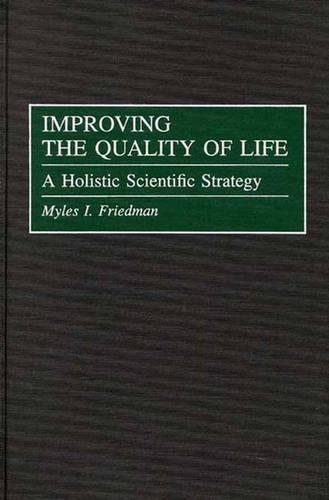
Improving the Quality of Life: A Holistic Scientific Strategy
(Hardback)
Publishing Details
Improving the Quality of Life: A Holistic Scientific Strategy
By (Author) Myles I. Friedman
Bloomsbury Publishing PLC
Praeger Publishers Inc
30th October 1997
United States
Classifications
Tertiary Education
Non Fiction
Psychological theory, systems, schools and viewpoints
301
Physical Properties
Hardback
208
Description
Nothing is of greater interest to most people than the quality of their lives. They go to great lengths to improve the quality of their lives and engage a variety of professionals to achieve that goal. Despite this, little has been done to increase understanding of quality of life, the factors that contribute to it, or the means of improving it. Friedman redresses this neglect and enhances our understanding of disability and its treatment. This book addresses the need, felt by professionals as well as the people they serve, for a better understanding of quality of life and how to improve it. Friedman makes a number of important contributions toward this end. He integrates and summarizes the diverse research on quality-of-life indicators and focuses and defines quality of life as a field of study. Friedman presents a holistic approach to quality of life. While many have recognized the need for such an approach, it has been given little more than lip service. By redressing the lack of understanding of what quality of life means, the factors that contribute to it, and the means to improve it, he has provided a book that will be of great interest to scholars, researchers, and professionals in a number of areas, from counseling to nursing, and to interested lay people.
Author Bio
MYLES I. FRIEDMAN is Gambrell Professor of Educational Psychology at the University of South Carolina. He has spent his professional life conducting research and building scientific theories in the fields of education and the social sciences. The emphasis of his work has been on human excellence, its nature, and attainment. Among his earlier publications are Taking Control (Praeger, 1993), The Psychology of Human Control (Praeger, 1991), and Rational Behavior (1975).
